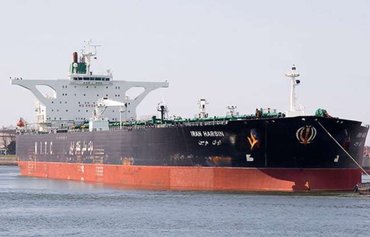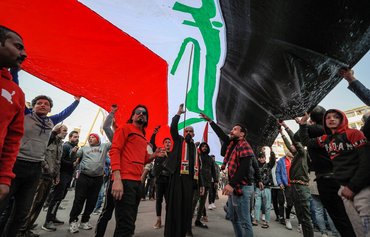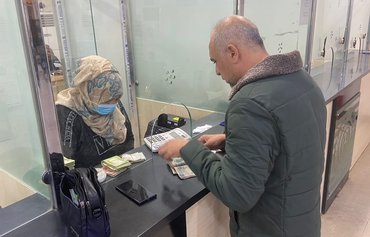With a powerful centralised regime controlling Iran, the country's financial and judicial systems have not been able to function as they should and are vulnerable to mismanagement and corruption, experts told Al-Mashareq.
"The public sector dominates the Iranian economy, and the most important sectors are controlled by the state," economic adviser Roger Melki told Al-Mashareq.
This level of state control is problematic, he said, noting that government agencies control large institutions, which in turn control everything from the oil industry to car manufacturing and the military and tourism industries.
Having a state-directed economy governed by a religious regime "limits the economy and handcuffs the central bank", he said, adding that banks also are subject to political decisions and directives.
Failure "becomes inevitable" in states where the political leadership does not support the market economy concept, Melki said.
Iran is seeing conflicts emerge over influence and many interferences in the economy "that are not based on an economic vision and data", he noted.
Vulnerable banking system
In recent years, many have voiced concerns over flaws in Iran's banking system and the large number of private banks that negatively impact the economy.
"The Iranian banking sector is not developed and does not have the financial infrastructure required to perform its role due to Iran's isolation," said Shawki Ahwash, head of the North Africa Commercial Bank AML/CFT unit.
This has made it "vulnerable to turbulence and unable to meet customers’ demands", he told Al-Mashareq.
"The Iranian regime has very limited options to protect its financial system and has failed to stop or slow down the rapid collapse of the economy," said political and strategic sciences expert Abdul-Mohsen al-Shammari.
Hundreds of entities and individuals have been targeted by sanctions, including 50 Iranian banks and financial institutions, he told Al-Mashareq.
Under sanctions Iranian banks also have been barred from SWIFT banking network services.
This has "stopped electronic funds transfers from reaching Iranian banks through the international remittance system set up between banks around the world", he said.
In statements to the parliament's official news website, ICANA, in May Iranian MP Mahmoud Sadeghi said that some Iranian conservatives have supported sanction-busters -- those who help the Islamic Republic circumvent US sanctions -- and legitimised bribery practices.
"These groups believe that it is impossible to run the country's affairs without resorting to financial corruption," Sadeghi said.
Corrupt judicial system
The judiciary is typically at the vanguard of fighting corruption, al-Shammari said, "but in Iran the judiciary is a tool for suppressing dissent and tightening the security forces’ grip on anyone who contemplates rebelling against the ruling regime".
The Iranian judiciary therefore serves as a "protector of the Iranian regime" led by supreme leader Ali Khamenei, he said.
In reports carried by local media, MP Sadeghi revealed that the number of prisoners in Iran "has increased 20-fold at the present time compared to 1979".
This has landed Iran near the bottom of the Corruption Perception Index (CPI) published by Transparency International, which recently ranked it 130 out of 160 countries, he said.
"Some are raising the question: If the judicial system is corrupt, who will hold the corrupt in Iran accountable?" al-Shammari said, noting that the judicial system in Iran "protects the entire political system".

![Iranian women use automated teller machines in Tehran on May 20th. [Atta Kenare/AFP]](/cnmi_di/images/2019/09/19/20009-Iran-Tehran-women-600_384.jpg)






